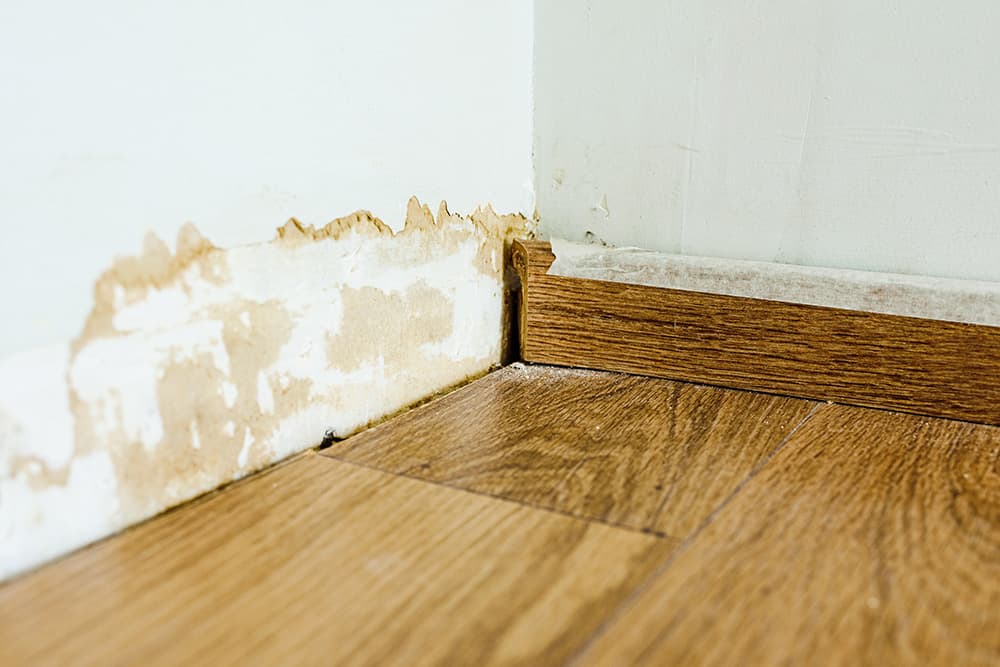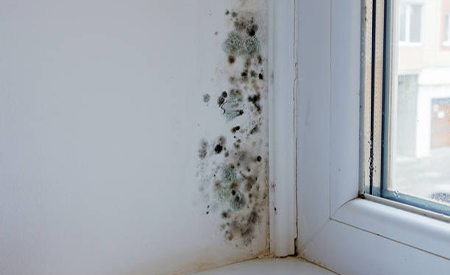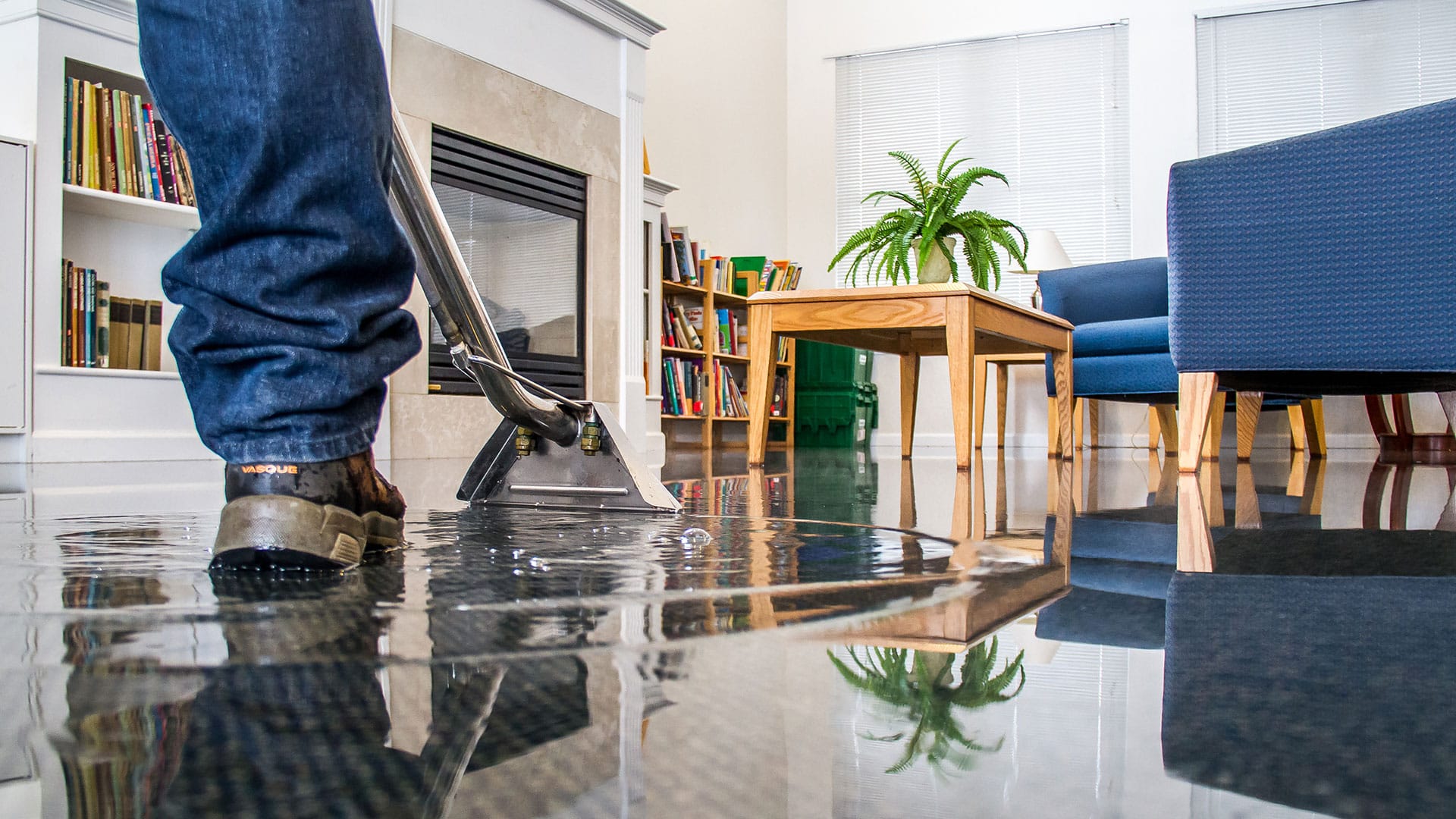Affordable Water Damage Repair Services for Every Homeowner in Need
The Process of Water Damage Cleanup: Guaranteeing Your Home Is Recovered Successfully
Water damage can be an overwhelming difficulty for homeowners, necessitating a organized and thorough clean-up procedure to bring back safety and security and functionality. At first, a detailed evaluation is vital to recognize the level of the damage and identify the appropriate remediation procedures. Following this, efficient water extraction methods play an essential function in mitigating additional injury. The subtleties of drying out, disinfecting, and eventual restoration are similarly vital and usually neglected. Understanding these phases can make a substantial distinction in the result of your home's restoration, prompting a closer consider what each step involves.
Examining the Damage
Upon discovering water damage, the initial step is to completely evaluate the degree of the impact. This preliminary assessment is important, as it assists determine the essential steps for reliable cleanup and repair. Begin by evaluating the affected areas, including wall surfaces, ceilings, floors, and personal belongings, to recognize the source of the water intrusion, whether from flooding, leakages, or condensation.
Documenting the damages is necessary for both insurance policy claims and intending remediation efforts - damage restoration services. Usage photos and composed notes to catch the severity of the damage, noting any kind of afflicted structural components and materials. Pay unique interest to areas that might not be immediately noticeable, such as behind wall surfaces and under rugs, as concealed wetness can lead to additional complications, including mold and mildew growth
Additionally, examine the timeline of the water exposure. The longer the products stay wet, the higher the capacity for damages. Understanding the duration of direct exposure will inform the urgency of remediation initiatives. Inevitably, an extensive evaluation prepares for an effective water damages cleaning process, making sure that all affected locations are attended to properly and thoroughly.
Water Removal Strategies
.jpg)
Experts typically utilize submersible pumps for bigger quantities of water, which can swiftly ease flooding in basements or other affected locations. For smaller sized quantities, wet/dry vacuum cleaners are often used to draw out residual moisture from rugs and hard surface areas. Additionally, making use of portable extractors enables targeted removal in confined spaces or areas with fragile products.
In instances of infected water, such as sewer or floodwater, progressed removal methods may include the usage of biohazard devices to make certain safety and compliance with health and wellness policies. High-powered extraction tools are crucial in decreasing water retention in architectural products, which can result in mold growth and structural wear and tear otherwise dealt with without delay.
Eventually, the effectiveness of water extraction methods plays a crucial duty in the total success of the water damage cleaning process, laying the groundwork for succeeding repair initiatives.
Drying and Dehumidification
Once standing water has actually been properly drawn out, the next vital stage in the water damages clean-up procedure is drying out and dehumidification. This step is important to avoid additional damages and mold development, which can occur within 24 to two days in wet water abatement settings.
To attain effective drying out, specific tools such as industrial-grade air movers and dehumidifiers is utilized. Air movers circulate air throughout wet surface areas, boosting evaporation prices, while dehumidifiers lower humidity levels airborne, promoting a conducive environment for drying out. The combination of these tools guarantees that moisture is attracted out from walls, floors, and furnishings, enabling them to dry completely.
It is very important to keep an eye on the drying out process very closely. Professionals often utilize wetness meters to examine the dampness content in various products, making sure that all influenced locations get to acceptable dryness degrees. This careful approach helps to avoid surprise wetness pockets that might cause architectural damage or unhealthy mold development.

Cleansing and Sanitizing
After the drying and dehumidification stage is complete, the following crucial step in water damage cleaning is cleansing and sanitizing the impacted locations. This procedure is critical to protect against the development of mold, microorganisms, and various other virus that grow in damp settings.
The cleansing phase generally involves removing any particles, dirt, and contaminants from surfaces using specialized cleansing representatives. For difficult surfaces, a combination of soap and water or business cleaning products is commonly used. Soft products, such as furniture and carpets, might call for extra extensive cleaning methods, consisting of heavy steam cleansing or deep extraction methods, to guarantee comprehensive sanitation.

Sanitizing complies with cleansing, using EPA-approved disinfectants to remove hazardous microbes. This step is crucial, particularly in areas that might have entered into call with floodwaters More Info or sewage, as these sources can pose severe health and wellness risks.
Furthermore, it is necessary to attend to any type of remaining odors, which may require using odor neutralizers or innovative strategies like ozone therapy. Appropriate cleansing and disinfecting not just restore the safety and security and hygiene of your home yet likewise prepared for effective repair and repairs in succeeding phases of the water damages cleanup process.
Remediation and Repair Work

As soon as the evaluation is total, remediation efforts can start. This typically includes repairing or changing damaged materials, making certain that all job abides by local building codes and criteria. If drywall has been compromised, it will certainly require to be eliminated and replaced with new product. In addition, flooring might need comparable focus, relying on the level of water direct exposure.
It is essential to involve knowledgeable remediation experts throughout this process, as they possess the experience to deal with complicated repair services effectively. They can help minimize potential future concerns, such as mold and mildew development or structural instability, hence making certain a habitable and safe living environment. Ultimately, efficient remediation and fixings recover the home's stability and improve its general worth.
Verdict
In verdict, the procedure of water damages clean-up is important for restoring a home to its pre-damage problem. Each phase, from examining the damages to executing effective water removal strategies, adhered to by extensive drying, sterilizing, and required repair services, plays a crucial function in ensuring safety and compliance with structure standards. Efficient execution of these steps not only minimizes instant damage yet likewise boosts the lasting stability and value of the home.
Water damage can be a difficult challenge for house owners, requiring a organized and careful cleaning process to bring back security and capability. Ultimately, a detailed assessment lays the foundation for an effective water damage cleanup procedure, making certain that all influenced areas are attended to effectively and extensively.
Effective water extraction methods are crucial in alleviating damages and preventing additional issues complying with a water invasion event.In conclusion, the procedure of water damage clean-up is critical for bring back a home to its pre-damage condition. Each phase, from evaluating the damages to implementing effective water removal techniques, adhered to by extensive drying, sanitizing, and essential repair work, plays a vital function in making sure safety and security and compliance with building requirements.